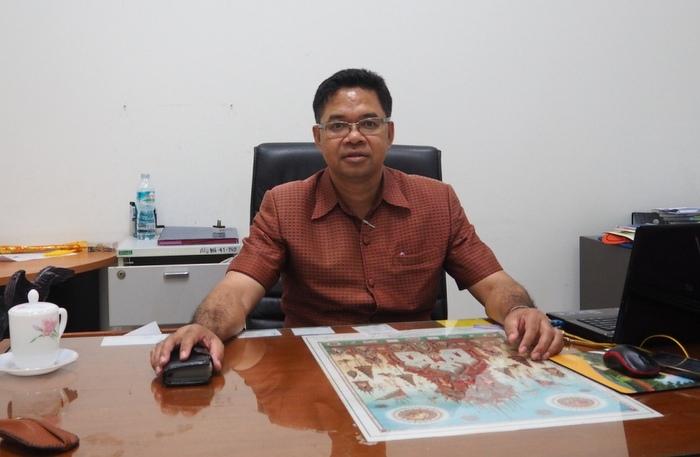Opinion: Protection from yourself

Sirisak Skoonsorutcha, originally from Surin Province, is the newly appointed chief of the Disaster Prevention and Mitigation (DDPM) Phuket Office. He graduated with a bachelor’s degree in public administration from Sukhothai Thammathirat University.
Here, he talks about the difficulties of preventing casualties caused by human error, as opposed to natural disasters.
PHUKET: Of course the DDPM rigorously tries to prevent death during any kind of natural disaster. However, we also try to prevent unnatural deaths from occurring during the day-to-day lives of those on Phuket.
As you might imagine, these are very daunting tasks because such deaths are unpredictable.
The 2004 tsunami was something we weren’t prepared for, which is why it caused so much devastation. However, now that we are prepared for a tsunami and other natural disasters, the bigger issue we are faced with is the everyday dangers on our roads and in our waters.
Road accidents are now the biggest issue in Phuket. People continue to die on our roads at an alarming rate and the number increases every year.
Marine accidents are the second biggest issue, as we regularly see tourists die while swimming, snorkelling or diving, as well as when taking part in other marine activities.
It’s hard to predict people’s behavior and protect them from themselves when they disobey the law or ignore warnings that are there to keep them safe.
The lack of cooperation and disregard for the law is the biggest obstacle we face in preventing these deaths.
In regard to road safety, locals and tourists often drive too fast. Many of them are also under the influence of drugs or alcohol, and, more often than not, are not wearing helmets.
With all of these elements combined, it is no wonder that we see deadly accidents almost every day.
To help decrease the number of these incidents, we have worked together with Phuket Governor Chamroen Tipayapongtada to launch the ‘One district, One road, with 100 per cent Helmets’ campaign, which will begin on February 1. We aim to educate motorcyclists about the hazards of driving without a helmet and will seize their bikes if they are caught without a helmet.
They will then be brought to the police station where they will watch a one-hour video on road accidents involving helmet-less drivers; be forced to buy a 99-baht helmet; and pay the maximum fine of 500 baht for the infraction. We also plan to test them for drugs and alcohol.
A second idea that we have is to require all rental vehicles to be registered with the Phuket Land Transport Office, so that when we arrest foreigners without a helmet or without a licence, we can track down the owner of the vehicle and fine him or her for letting a tourist rent that vehicle unlawfully.
As far as marine accidents are concerned, we face similar issues.
Red flags are a universal warning sign to stay out of the water. Lifeguards even have multilingual signs posted with the beach rules and regulations. However, people ignore them.
There is not much that the DDPM can do to prevent marine accidents, as it is up to the Marine Office and the Ministry of Tourism and Sports to monitor tour companies and tour guides. However, I am aiming for all relevant officials to work together to avoid marine accidents. This will also help us at the DDPM to collect more data about what the best response is to these emergencies, and to ensure that rescue workers are trained in the best possible manner given the island’s needs.
The DDPM should be, and is, on-call 24 hours a day to respond to disasters or accidents anywhere on the island.
The DDPM is responsible for everyone’s safety and we take the job very seriously. However, at the end of the day, people need to help us help them by following the rules and regulations put in place for their own safety.
— Kongleaphy Keam
Latest Thailand News
Follow The Thaiger on Google News:


























